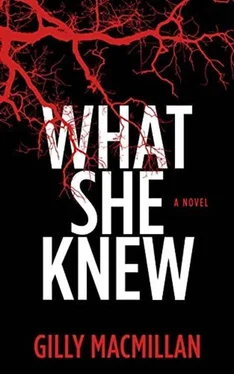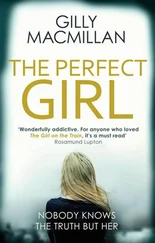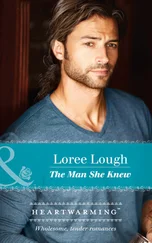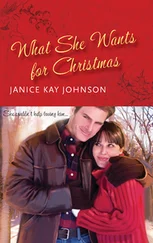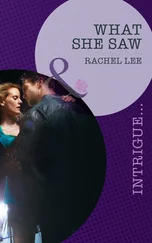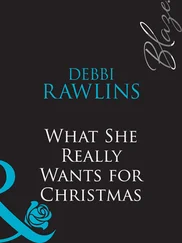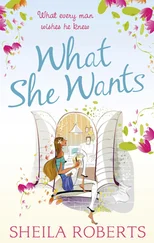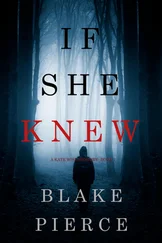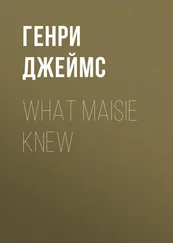Ruth’s mother and father both died in 2004, and she took it hard. As a tribute to them, she preserved many of their traditions long after their deaths. Lotte Stern had kept a special white tablecloth just for making the delicate strudel pastry that she took much pride in. Ruth kept the tablecloth, and more than once made what we called ‘Lotte’s strudel’ with Ben, asking him to stir the filling while she showed him the methods she used to stretch and roll the wafer-thin pastry.
In fact it was the tiny Benedict Finch, only 6lb 13oz when he was born in July 2004, who brought Ruth back to us after her parents’ death. She adored him instantly, she opened her arms to him and never wanted to let him go, and to all of our surprise, she included me in that embrace. Right after Ben’s birth, she came to stay and she helped me through the difficult first weeks and months, and then she never stopped helping. She became a companion to me, a friend and a wonderful grandmother to Ben.
John told me a story about Ruth once. It was a rare confidence about his childhood that he told me just after I’d met her. I think he wanted to explain her to me. It was a story that showed her darkness and her light.
When John was about nine years old, he’d gone to see Ruth after school. It was during one of her periods of depression, and he was ushered quietly into her darkened bedroom to show her a prize that he’d won that day.
Ruth examined his certificate, and then propped it up on her bedside table. She patted the bed beside her. It was a rare invitation and John sat down carefully, desperate not to break the moment, daring to do nothing more than glance around the room, which the drawn curtains had given a chiaroscuro quality, so it felt to him as if he and his mother were drawn characters in a children’s book.
‘Where I am weak,’ she said to him that afternoon, ‘you can be strong. Like your father.’
She held his hand tenderly, examining with the tips of her fingers each of his. He remembered that sensation. Then she spoke to him of music. John explained to me that when Ruth was drained of life, she seemed always to have music left in her, and it was this that was her gift to him, even when she lacked the energy to get him up, make his packed lunch, or take him to school in the morning.
After sitting with his mother until she was too tired to talk any more, John left her room with his little heart beating, relieved to escape her intensity yet longing for more of it.
When we arrived at the nursing home, Zhang said she’d wait in the car.
Ruth was in her room. It was a generous size, one of the nicer rooms upstairs, with large windows overlooking a garden and some mature trees below. It was a thousand times nicer than some of the grey and murky spaces we’d looked around before placing Ruth here.
Those homes were like holding pens, where residents waited for death with little more status than corpses. Loneliness, confusion, pain and the smell of urine and boiled food seemed to be their only companions as the light faded on their lives. Those places had made me shudder, and sometimes weep.
Carpe diem was the lesson to be learned. It’s what I had been trying to teach Ben when I let him run ahead in the woods. Seize the day – be brave – be independent – be thoughtful – don’t be scared to make mistakes – keep learning – all of those things, all the time. And somebody had taken him. More fool me.
Ruth’s chair was turned to face the window. Her hand rested on its arm, her arthritic knuckles gnarled and inflamed, her fingers resting at unnatural angles. Macular degeneration was starting to steal her vision and she had to keep her head at a sideways angle to see me properly. Somebody had done her make-up, there was rouge on her waxy skin, a smudge of the bright lipstick she’d always favoured.
Classical music was playing softly and I was relieved to see that it was a CD as John had requested, and there was no sign of her radio so there was no chance of her hearing about Ben on the news.
‘Rachel,’ she said. ‘Darling.’ She reached for my hands with her own and cupped them stiffly, a favourite gesture of hers.
‘Where’s Ben?’ she said. ‘I missed you on Wednesday. People think I know nothing any more but I do know when it’s Wednesday.’
She was putting a brave face on it, attempting to maintain her dignity, but I knew from her carers that her agitation had been more extreme than she was letting on. She was also more lucid than I’d expected, and I didn’t know whether to be grateful for that or not.
‘He wanted to try chess club,’ I said. ‘I was planning to bring him over here after it finished, but he was feeling poorly when I collected him. I’m sorry. I should have phoned.’
‘You should have,’ she said. Manners mattered to Ruth. ‘I thought it was half-term, that I’d forgotten, I’m a little forgetful nowadays you know,’ she told me, as if this were news, as if I hadn’t been minutely tracking the destructive progress of her dementia since her original diagnosis, ‘but Sister told me she was sure it was next week.’
I’d forgotten that half-term was about to start, of course I had.
‘What was wrong?’ Ruth asked.
‘He had a sore throat, a bit of a temperature, I think it was a virus.’
‘Should he be back at school? Is he wrapped up warm?’
‘Yes,’ I said, and the lie felt as though it might wind its way around my throat, and tighten.
‘Is he working hard?’ she said. Her eyes were milky, and the impotence of her condition wandered around their depths. ‘At the hospital?’
She was confusing Ben and John. It happened often, and I went with it.
‘Not too hard. He’s doing well.’
‘He must practise, when he’s better, because when he is big enough and good enough he must have the Testore.’
The Testore was Ruth’s violin: a beautiful instrument, made in eighteenth-century Milan, her most valued and valuable possession.
‘He’s not showing any signs of growing out of his half-size yet,’ I said.
‘No, but he will. They do, you know.’ A half-smile played on her lips, a memory, and then died away again.
‘What’s he playing?’
‘Oskar Rieding. Concerto in B minor.’
‘The whole thing?’
‘Just the third movement for now.’
‘He must be careful with his bow control. In this passage in particular.’
Ruth began to hum the Rieding concerto, her hand beating time. She had an extraordinary memory for music. Each note she’d ever played, or taught, seemed to have found a place to lodge in her head, all its resonance still alive to her. She’d started Ben on the violin when he was six, insisted on paying for his lessons. He was showing promise, some of the musicality that had travelled from Vienna, through her family, and that thrilled Ruth.
She stopped abruptly. ‘Have you got that?’ she asked, as if I was her pupil myself.
‘Yes. I’ll remind him.’
She pulled herself forwards. Her dress shifted over her skeletal knees, catching on the surgical stockings that she wore on her calves. I noticed a small stain on her pretty yellow scarf. On a table, just within her reach, a shiny golden sweet sat in the middle of a crocheted doily. Her hands scrabbled uselessly to grasp it, but I knew better than to offer to help because that would have upset her. Finally, her fingers got a purchase on it.
‘For Ben,’ she said. ‘I saved it.’
On the rare occasions that Ruth took part in the communal activities in the home, she was ruthless about acquiring the sweets that were sometimes offered as prizes. She hoarded them for Ben.
‘Thank you,’ I said.
She went through the same rigmarole to reach something else, a book. She passed it to me. ‘Look at this. I got it from the library. Does it remind you of anything?’ A smile passed across her lips, a rare sight nowadays, usually only bestowed on Ben.
Читать дальше
